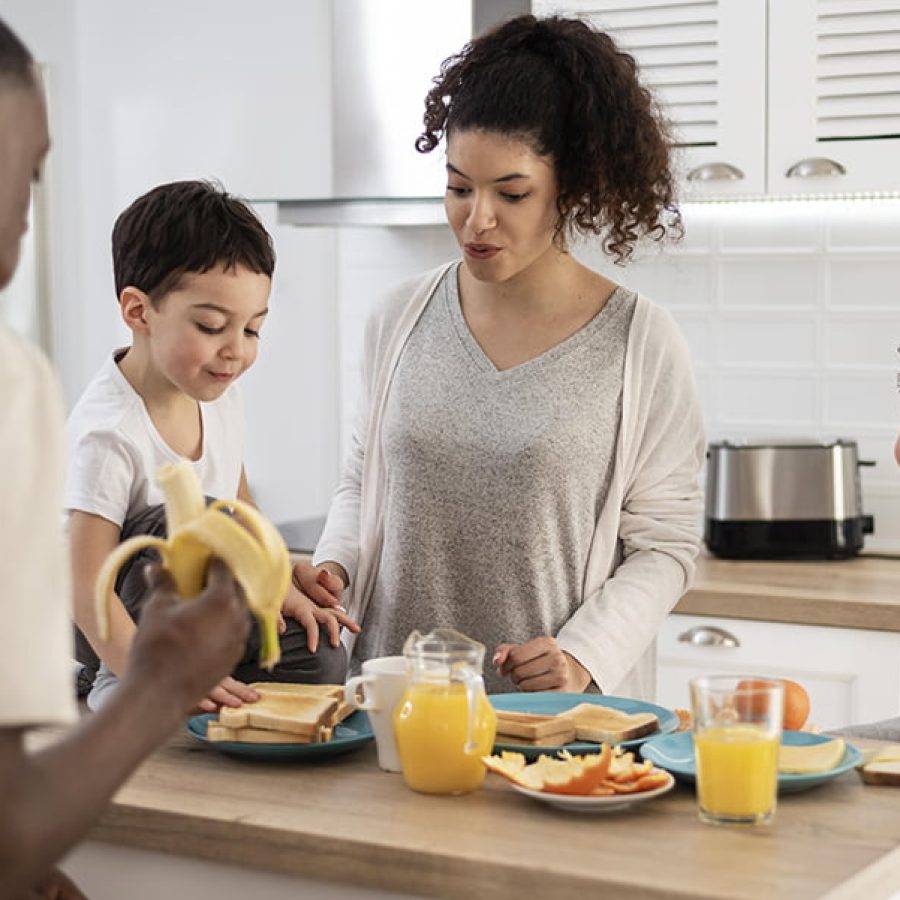Routines and rituals are extremely important to teach children about rules, patience, persistence and a variety of skills. When we talk about family routines, it involves a pattern of activities done repeatedly and incorporated on a daily basis in a group by members of the same family.
Let’s say for example, that your family always has dinners together, that you always play scrabble on friday nights or even go for a short walk in nature. These are examples of family routines and rituals and even though they seem simple, they play an important role in a child’s development.
We broke down some key points that can be improved with these practices. Keep reading!
Communication development
Communication is the basis of expression of wants and needs. Also it is a way to set boundaries and protection if necessary. Needless to say, the ability of good communication goes extra miles in adulthood, especially in situations where we need to be clear and concise.
Besides that, communication also involves the learning of languages, because after all, having a bigger range of words and ways to express yourself is very helpful when we want to make ourselves clear. Also it will help you understand your child’s needs.
Not to forget, it is important to mention that studies based in the UK came to the conclusion that learning languages improves cognitive skills, like memory, for example.
How to stimulate communication then? Introduce new words and information in their daily lives. Set family routines when you can have a chit chat with your children. Ask them questions and let them formulate their own answers. Induce their thoughts to see the bigger picture and be open to what they have to say listening to them with enthusiasm.
Social skill development
Children start socializing the moment they interact with people around them, even if they are not able to talk yet. Social skills should be stimulated from their young years as it will have a strong impact in their future relationships.
How do they learn social skills in family routines? Simple rituals like sharing a meal and asking how the day was can go a long way as it shows that caregivers are present, listening and validating the child’s experiences. It is important for kids to feel heard and seen.
Social skills also involve the ability of managing difficult emotions, showing empathy, being cooperative and understanding that their own selves are important as much as the others. Use every opportunity to work on these skills, especially if a conflict happens. These abilities will make kids much stronger and confident in their adulthood.
Marital satisfaction and family stability
As we know, children absorb every bit of information from an early age, and the environment they live and experience is a key factor in their development. When we talk about the environment, it’s not only about the physical space, but also the energy and the atmosphere the family relationship gives off.
Remember that the way the caregivers treat each other, sets the first and most impactful reference of what a relationship should be, and this will have a huge impact on the child’s future relationships as they will look for similar patterns of what they experienced and mirror these behaviors throughout their lives.
Having caregivers that show love, respect and care on a daily basis by doing chores or being helpful, or in moments when conflict arises, will help children assimilate a better way to process emotions and seek better relationships in the future. Also, a loving and stable family reference will reduce the probability of them diving into dysfunctional relationships.
Now that you learned some of the benefits of having family routines, it will come down to practice. Set some time of the day to have play activities and share what happened in your day. Another tip, is to do some chores together, to bring also a sense of responsibility and being part of a unity where everyone cooperates to live in harmony.
How do you do your family routine? Leave a comment and tell us what activities work best for you and your kids!


